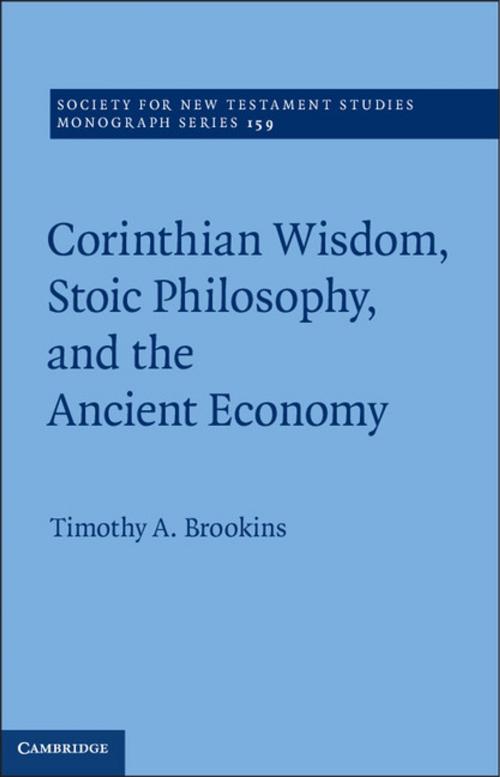Corinthian Wisdom, Stoic Philosophy, and the Ancient Economy
Nonfiction, Religion & Spirituality, Bible & Bible Studies, New Testament, Study, Philosophy| Author: | Timothy A. Brookins | ISBN: | 9781139949422 |
| Publisher: | Cambridge University Press | Publication: | July 28, 2014 |
| Imprint: | Cambridge University Press | Language: | English |
| Author: | Timothy A. Brookins |
| ISBN: | 9781139949422 |
| Publisher: | Cambridge University Press |
| Publication: | July 28, 2014 |
| Imprint: | Cambridge University Press |
| Language: | English |
This work re-examines the divisive wisdom that Paul addresses in 1 Corinthians. Challenging the recent consensus that the Corinthians' wisdom was rooted primarily in the Greco-Roman rhetorical tradition, Timothy A. Brookins offers a revisionary thesis centered on discourse similarities between the perspective of the Corinthian 'wise' and the Stoic system of thought. Brookins argues that several members of the church, after hearing Paul's initial gospel message, construed that message in terms of Stoic philosophy and began promoting a kind of 'Stoic-Christian' perspective that helped to precipitate divisions in the church. Being apprised of their views, Paul then exploited the 'Stoic' discourse of his opponents in order to sustain common discursive ground. In addition to providing a fresh synthesis of the data in 1 Corinthians, Brookins brings in cutting-edge research on the ancient economy as he explores questions related to philosophical education and social status within the church community.
This work re-examines the divisive wisdom that Paul addresses in 1 Corinthians. Challenging the recent consensus that the Corinthians' wisdom was rooted primarily in the Greco-Roman rhetorical tradition, Timothy A. Brookins offers a revisionary thesis centered on discourse similarities between the perspective of the Corinthian 'wise' and the Stoic system of thought. Brookins argues that several members of the church, after hearing Paul's initial gospel message, construed that message in terms of Stoic philosophy and began promoting a kind of 'Stoic-Christian' perspective that helped to precipitate divisions in the church. Being apprised of their views, Paul then exploited the 'Stoic' discourse of his opponents in order to sustain common discursive ground. In addition to providing a fresh synthesis of the data in 1 Corinthians, Brookins brings in cutting-edge research on the ancient economy as he explores questions related to philosophical education and social status within the church community.















